Meet Vibhore Sharma - the self-taught technologist who's CTO of Naukri.com
Vibhore Sharma’s story is a testimony to how passion trumps everything. He lost his father while he was still in school and couldn’t go to college. He had to start working early to support his family, but he didn’t let it come in his way. Our Techie Tuesdays of the week, Vibhore is the CTO of Naukri.com, the company he joined almost 16 years ago.
To know Vibhore Sharma is to know Naukri.com, the company he has been associated with for the past 16 years. This is quite an achievement for someone who was questioned everyday by his mother if he still held a job.
It is safe to say that Vibhore has gone through more ups and downs than most people. But he emerged from the throes of life's challenges as a stronger individual who has his priorities straight. Our Techie Tuesdays of the week, Vibhore is currently the CTO of Naukri.com, India’s largest jobs portal.
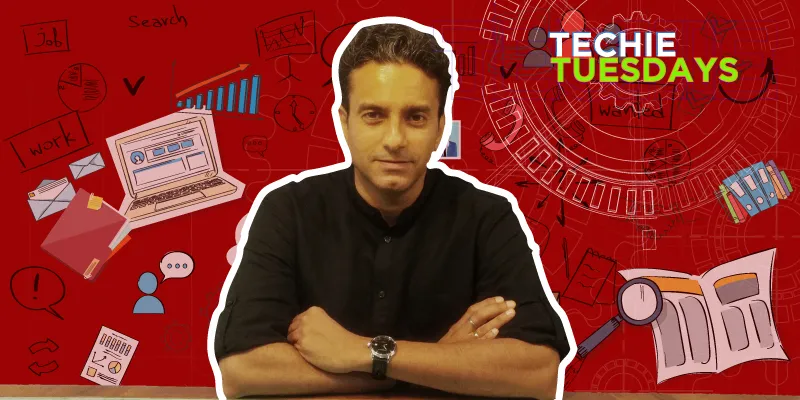
Now would you believe if we tell you that he has never gone to college? But he was neither the college-dropout prodigy nor that person who did not have faith in the education system.
From his first job of selling compressors to now leading the technology efforts at India’s largest jobs portal, Vibhore has come a long way. He now works on one of the largest databases of people in the country.
He spoke to YourStory recently about his journey and how he is putting Naukri.com at the forefront of next-gen tech companies.
Related read - Sandipan Chattopadhyay — the statistician behind the 160x growth of Justdial
The superman childhood
Vibhore was born and brought up in Delhi in a middle-class family. His father was a mechanical engineer and Vibhore grew up looking at blueprints of machines and sketches of compressors.
He recollects being an extremely mischievous kid. In fact, his mother once tied his legs to make sure that he remained in her line of sight while she continued doing household chores.
Though he loved comic books, his family couldn't afford buying them.So he rented them. Such was his love for superheroes, that he and his friend once fashioned capes out of towels and jumped off the first floor! Thankfully, the friend just had a broken bone, while Vibhore escaped with a few scratches.
In school, Vibhore spent a lot of time playing football. He loved organic chemistry. and opted for the Maths-Biology stream in Class XI.
Flipping the switch
Vibhore'sfather passed away when he was in Class XII, succumbing to a cardiac arrest whilst touring Kolkata. Vibhore recalls,
I replay the time I heard the news in my head many times, but I still don't know what was the first thought in my head; was it – ‘Oh! I lost my dad!’ or ‘Who's going to earn the daily bread now?’
That was the moment when he flipped a switch. He had two choices after school – either join the forces or pursue literature in college. Since his mother didn't let him go to the army, Vibhore was considering applying for admission to one of the DU colleges. He says, “While filling the form, a thought occurred to me: my mother has never worked at a job all her life but was now working. So I asked myself how I could go to college and have a blast while she was slogging.”
Vibhore's father had had no savings. He says, “We were rebuilding the house, for which he had taken a loan from his friend. We didn't have any money then. There was no way I could be without helping my mother.”
He, therefore, decided to skip college, and instead started working for his uncle, selling compressors.
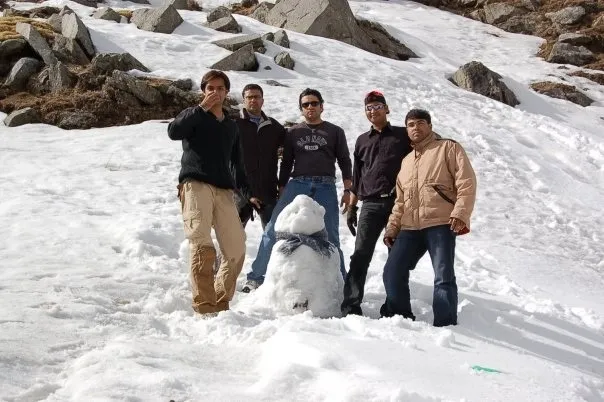
Job #1 – selling compressors
It wasn't easy for Vibhore as, at 17, he didn't have a clear sense of what was expected of him. Moreover, he felt out of place, surrounded by mechanical engineers and other qualified people. He says, “But you gotta do what you gotta do!And survival teaches a lot of sense.”
Vibhore read up on the subject and spoke to people in order to better understand the products he was selling. He had to go to remote locations in Punjab and Uttar Pradesh to sell these products. He says,
I had no idea that I could do this. But I went about doing it. It was tough in the beginning. There were many times when people asked me to leave and send someone senior instead.
In order to come across as more experienced, Vibhore tried to look more mature and started hanging out with clients in the evenings to break the ice.
Finally, after three years at it, Vibhore left the job. He says,
This was the foundation for me, which got me thinking that survival was fundamental and taught me that if you don't know something, you can figure it out along the way.
Also read - How a small-town commerce graduate became CTO of a multibillion-dollar company
Job #2, #3, #4…
Vibhore then worked as a medical representative for some time. But very soon, he hit upon an idea of making a movie. He landed at Miditech, a TV production company, as a production controller. His job was to essentially manage logistics of all possible shoots. He would've gotten an assistant producer gig soon enough, but he didn't want pursue that path. So, instead he made friends with a couple of editors and camera persons, and learnt their skills. But seeing that his movie dreams weren't taking flight, Vibhore returned to the pharmaceutical industry. He joined US Vitamins.
This time around, the job was very challenging as he was expected to sell a complicated line of products:a low molecular weight drug called Heparin, which is administered to patients who have been bed-ridden for a long time. He had to often visit specialist hospitals and meet with cardiovascular thoracic surgeons. Things seem to be looking up and Vibhore felt he had finally figured out what he wanted to do.
His mother, however, feared that Vibhore would leave his job. History made her worry so. He says, “She used to ask me everyday when I got back home if I am still continuing at my job. I had changed multiple jobs my now. Sometimes it was within a month's gap, sometimes more than that.”
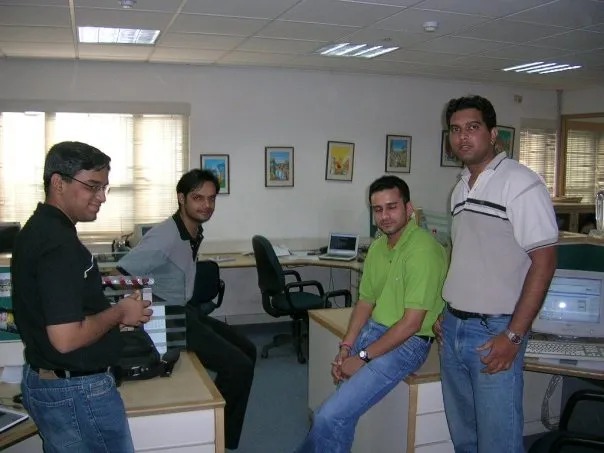
Orange books and introduction to programming
Around the same time, Vibhore’s brother was pursuing the popular GNIIT course at NIIT. He used to drop him to the class on his scooter and then proceed to work. But something about the computer books with orange covers and the 1.44-inch floppy drives he carried around triggered curiosity in Vibhore.
Curiosity soon blossomed into keen interest in exploring the idea of learning computer programming. He then joined a six-month full-time course CMC was offering. He recalls, “It was 1999 and I thought that if I go for a part-time course for a year we may hit the Y2K (bug), so we decided to go for a six-month course to fall in the window (and exploit) between finishing the course and the potential bubble burst(Y2K).”
His mother didn't think it wise to leave a job that was paying him well. He had pooled all his savings to join the diploma course, which promised to teach multiple programming languages in six months.
This was the first time Vibhore worked on computers. “I recall my first impression of computers –being that they were better than calculators,” Vibhore exclaims.
Within a week of joining class, he was told lessons on C++ was done and over with. Vibhore was mortified, because he did not know anything. He then convinced the computer lab in-charge to allot him a system to work on in the evenings and nights. He spent hours hunched over the computer, putting much more effort into learning than he ever did in his school days.
You may also like - Meet Sauvik Banerjjee, a Ranji trophy player who went on to architect Reliance Jio
‘It’s greater than zero’
At the end of the computer programme, Vibhore was back at square one, wondering what his next step should be. Meanwhile, CMC offered him a teaching job at the centre and he accepted that. It was paying him less then one-third of what he was getting in his previous job, but that did not matter to the young man. Vibhore says, “The salary was just greater than zero. But it was the excitement of the craft that got me into computers. I still hold that excitement for it.”
Vibhore recalls working on an interesting assignment that he got during 1999 general elections. He says, “We worked on real-time data. We had to process the data feeds coming in from the elections using some FoxPro programs and send them back from the terminals at CMC.”
Unfortunately, that branch of CMC shut down in a few months and Vibhore was left facing the now familiar question of 'what next?' After some time, he decided to get back to sales and joined Information Technology in India Limited(ITIL), a subsidiary of Usha Group. They were building MyUsha.com, on the lines of MyYahoo, which would have news feeds, searches and more. Vibhore helped the company collect data of restaurants.
He soon started hanging out with the programmers in office and started helping them with the code that would eventually go into setting up the website). It was primarily Perl and .net.
Meanwhile, data gathering work discontinued and the company formed an editorial team. Vibhore joined as a reporter, besides continuing his nightly coding adventures. He used to go to the offices of news wire agencies like PTI, UNI and AFP in the evenings to gather relevant news to upload on the website. He also started making ads for the company around this time. A feather in Vibhore the Reporter's cap during this stint was an interview with Kiran Bedi.
Paving the path to Naukri.com
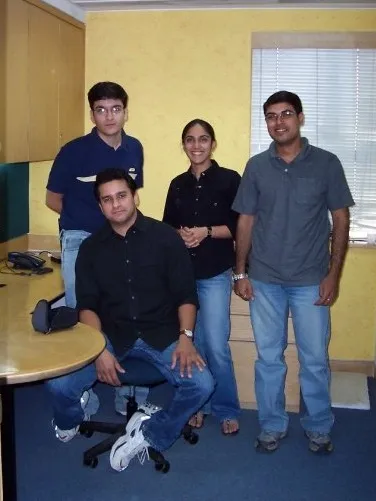
Unfortunately, MyUsha discontinued soon, leaving Vibhore with two options: either to go to the US on a friend's invitation to work with him, or join Sanjeev Bikhchandani (who was also earlier working with The Pioneer) at Naukri.com on a role that was not yet clear.
Vibhore decided to join Sanjeev. At that time, Naukri.com was operating out of Sanjeev's home. The company had recently raised funding from ICICI Ventures and the new office was under construction. Vibhore started figuring out how could he make himself useful there. He spoke to Anil Lall, who had built the website, and started chipping in. He worked on building the first resume manager.
Naukri.com – early days
Initially, Naukri.com’s tech stack was pretty much on Linux and the tech team had written its own C++ libraries. They were running FoxPro database on Linux machine, which at times resulted in bugs and issues on the website. Vibhore took on the mandate to fix the bugs.
Naukri.com had static pages then. They used zip HTML pages, uploaded them, unzipped them and renamed the directory to make the site ready. Google came around the same time, and all of a sudden, search became something to look at. Naukri.com team built search using their own stack.
For the first few years the website didn't even have the option for people to upload their CVs or create their profile. The team just digitised the jobs published on multiple newspapers and listed the phone numbers and email IDs of recruiters to whom people could apply.
Related read - The geek from Egypt who’s taking on the world of big data – meet Cloudera’s Amr Awadallah
Moving ahead
Naukri.com soon launched its first resume form. Though there were some errors at the beginning, the team kept fixing them by re-indexing the whole data. The team also decided to move to a simpler stack PHP, MySQL (from C++). Vibhore says,
The idea of building the resume form was to enable job seekers and recruiters to start searching. We faced the classic problem of not having a lot of search on structured data. So, we used full text search on the CV in MySQL.
The tech team was quickly iterating the product based on market feedback.
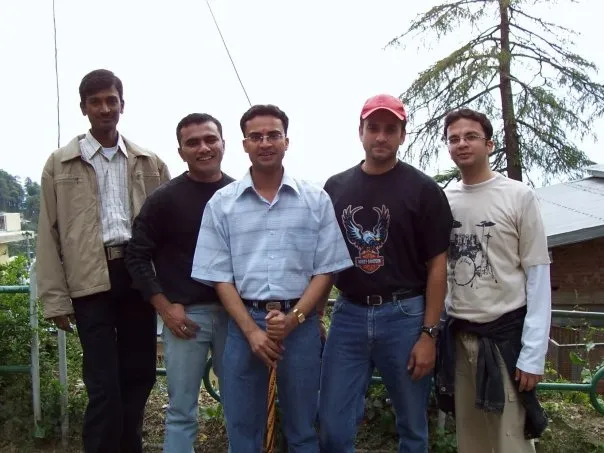
By now, recruiters started depending on Naukri.com and they were harenssing the database of the million-plus job seekers registered on the platform. There were situations where MySQL would stop responding completely. Vibhore says, “We had to restart the sever, reboot it and restart MySQL, split the data, kill queries and whatever required to get the system up and running.”
This is when Vibhore came across Lucene (now Apache Lucene), developed by Doug Cutting. He downloaded the code, and converted the database of MySQL, realising this was much faster. In fact, the platform is still using the same, although multiple internal changes have taken place since. Vibhore adds, “We took a risk as there was no support and Lucene was run by one guy, but it paid off well.”
A few months before the IPO, Sanjeev asked Vibhore to hang the geek shoes while Hitesh Oberoi (Co-promoter, MD & CEO of Infoedge) said, "You've to figure out how much you want to do yourself and how much you should delegate."
By then Vibhore was pretty much addicted to coding. He says, “The moment I faced the black and white screen, I would lose the sense of time. The constraints excited me.”
Building to scale
The biggest challenge for Naukri.com was scaling while keeping the cost low. The company didn't want to spend a lot on hardware. Vibhore says, “Every time we felt the need to buy a new server, we went back to the core and took a re-look to see where are we going wrong and how we could optimise. We kept re-architecting, rewriting a lot of code to be able to scale up the user base.”
The tech team had written tools/scripts to monitor the servers’ performance,in keeping with the traffic. They wanted to be preemptive and not reactive. They built in-house firewall, balancer, and instrumentation. Vibhore adds, “As a team, we have done good in terms of working on PoCs from an evaluation standpoint of new technologies. We spit it out if it doesn't make sense for our use case. For me, the application of the tool or technology was more important than the tool itself.”
Vibhore and his team wrote a lot of C extensions to work along with PHP. They also wrote a lot of pre-query processing to make it lighter for Lucene,while working on building search as a scalable service.
One of the highlights of the early days at Naukri.com was building eApps, a parallel system for application tracking. It was back then what Google Hire is today: essentially, a platform where recruiters could manage applications coming to their jobs. However, the company found that people didn't stick to it a lot, and the efforts didn't take off well. Meanwhile, Naukri.com continued building Resume Database Access.
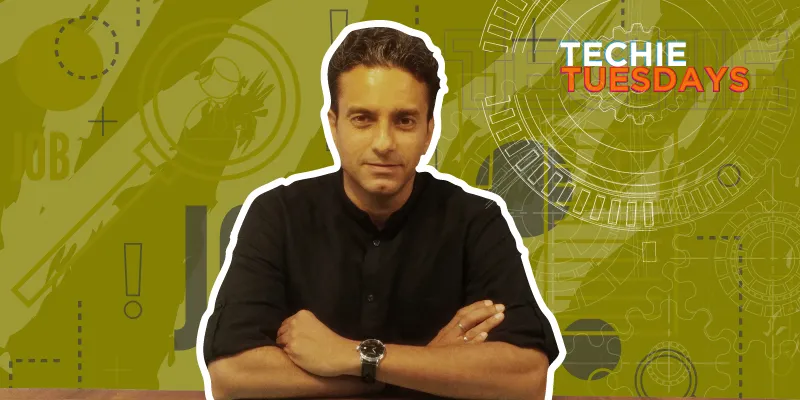
The team is now re-working on a much more evolved version of eApps.
Over the years, Naukri.com has used PHP, MySQL, Perl, Python, C, C++, Java, and Ruby in development. Vibhore says,
We've always chosen technologies based on what makes sense in our context, and not the ones that were simply hot and happening.
Key challenges at Naukri.com
Over the years, while scaling the performance of the system, Naukri.com has solved some key problems consumers faced. Vibhore explains,
The platform isn't about enabling people to apply to 100 jobs, or recruiters to contact 1,000 candidates. The platform is about making their intersection possible. You try to learn user behavior.
The fundamental challenge at Naukri.com is to match the disconnect between a recruiter and the job seeker. An individual's resume is a chronicle of what they have done so far and a historical showcase of his/her competence and achievements. But when an individual is looking at job switch from the context of career progression, there's a fair bit of aspiration and ambition, which is nowhere visible in the resume. Therefore,matching becomes difficult. The same applies for job applications as well. Naukri.com wants the users to come back to the website as often as possible in order to know them well. This will help in giving better recommendations and results.
Then there is the issue of the CV being overstuffed with information. Vibhore adds,
People don't want to take chances so they stuff their CVs with keywords. Applicants also do carpet-bombing at times. So we've to deal with all this and solve this problem of what's right for an individual. We have had challenges wherein recruiters have wanted their jobs on page one and even tried to game the system.
Wisdom of crowd
Naukri.com has been using machine learning and artificial intelligence for many years. When the company saw CVs pertaining to specific profiles being picked up by recruiters, they knew theywere on to something. They didn't know what it was but something was common in these profiles. Similarly, when people viewed certain jobs, the company tried to find the relation. They called this 'wisdom of crowd'.
Vibhore and his team worked on algorithms that improved over a period of time. Defining the degrees of similarity between two profiles, the team then built a statistical model and a probabilistic model on the top of it.
Todate, a lot of the website’s traffic comes from these recommendations, and the company has done significant work in these fields using data science. Vibhore adds,
There's one thing to interpret behaviour and there's another to have a probabilistic model based on this behaviour. That's where statistics play a huge role. We have combined both of them.
Vibhore explains that Naukri has been riding the wave at the right time, and doing things consistently to reach its position today.
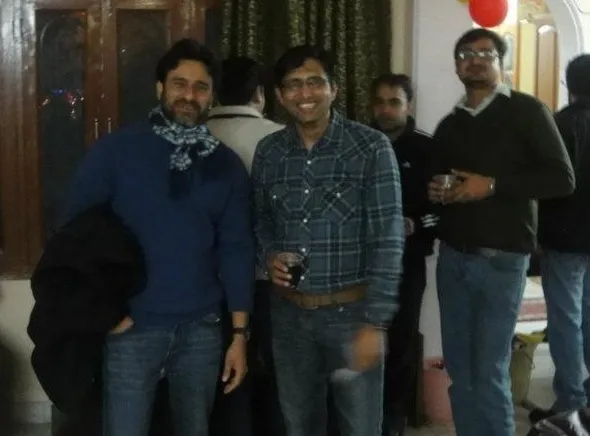
Story of millions of emails
Naukri.com sends a lot of emails. The platform receives millions of CVs daily which they have to sift through and match with a few lakh jobs, again received on a daily basis. Timely action is needed in this area: job alerts have to be sent to people so that they open them on time. Vibhore found patterns of email opening and started timing the emails accordingly. The recruiters also send emails from Resume Database Access to the job seekers using Naukri.com’s servers. It’s interesting to note that these emails receive almost 25-percent open rates.
Vibhore recalls an incident from the company's early days, when a lot of people were misusing the platform. He explains, “In the Linux box there's an email client mutt. There's a spam filter called bogofilter in it, which uses statistical analysis(Bayesian filtering) of the message's header and content to identify spam. We fed spam and ham mail into the system and started using the bogofilter between the layers. It worked really well as a spam filter for us.”
Problem at hand
Presently, the biggest challenge for Naukri.com lays in building an ecosystem. The team has built a platform and is already running beta with few recruiters and consultants. They have code named it 'Recruitment Management System'. Vibhore believes that the problem is much more exponential from the standpoint of scale and personalisation. He explains,
Our perception of reality is now what machines and algorithms know about us. Chance discovery isn't possible and you see more of what you like. Active search and active discovery is dying. I don't seek information anymore. Information comes to me. Discovery is slowly being killed by recommendations.
Naukri.com is facing a similar challenge because if it continues to show the kind of jobs users apply for, then lateral shifts are not going to come about. This way, the platform isn’t adding any intelligence.
One of the ways to solve this, according to Vibhore, is to look at the career paths of people and give recommendations by observing what kind of people with which background end up doing what. Another way is to look at what really motivates people. The latter is, understandably, harder to figure out.
Vibhore notes that it will be an uphill task to maintain the EBIDTA and margins at levels Naukri.com has currently, while also ensuring its present user experience is undisturbed. The team spends wisely on its infrastructure.

Team building at Naukri.com
Vibhore follows two simple rules when he hires:
- If you need to look at someone who you hope will augment a certain skillset that the company does not currently have, then the person needs to be really good at said skillset. For example, when the company needed a statistician, they were looking for a skillset they didn't have earlier. At the same time, having a statistician in the team helped them solve some complicated problems and grow quickly.
- If you're augmenting people without looking for specific skills then you look for people who're ahead of their peers by leaps and bounds. These people neither go by the book nor do they fail where others do.
Vibhore believes that passion trumps talent any day, and is so palpable as to shine through when you speak to the individual. It comes across in a discussion, even with a person who may be an introvert. He says, “However, if you've an environment where the passion doesn't find purpose, then you've a problem.”
Also read - From UP to the US: The journey of Abhinav Asthana and his affair with APIs
Evolution of recruitment industry
Vibhore points out that the biggest shift in the recruitment industry is in terms of job seekers looking to make a career change instead of a job change. With time, the industry is evolving towards becoming more scientific and more fitment—people looking for specific jobs cut out for them—driven. Employability is one of the major concerns of the industry. Vibhore says,
A lot of efforts right now go into screening the right kind of candidates. The gap between a hiring manager's understanding and that of a recruiter will reduce. Many organisations, like HackerRank,that help in validating the skillset of a candidate will come up. Lot of automation will come into picture for jobs like those at the call centre. You've to capture the sense of a good hiring manager in a software.
Vibhore notes that in the future the conversation will be much around who's competent for a job and how one marries potential, ambition and experience deftly in order to qualify for a job. He adds,
Right now, many companies are looking at having a system that can enable utilising their on-bench strength to fit in the empty positions.
Naukri and startups
Naukri.com (Infoedge) has acquired three startups—TooStep, MakeSense and Ambition Box—since 2012 and continues to keep an eye on startups in the recruitment industry. Vibhore says, “It's good to see new perspectives that startups bring and to look at the possibilities of being disrupted.”
Vibhore looks at three aspects of the company: what it can build, what it can defend and what it can acquire in an area where it is stronger. He doesn't ignore anyone on the block.
Vibhore is vocal about the fact that Naukri.com is paranoid about becoming a dinosaur as an organisation and as a team, and hence these developments with startups help keep the company on its toes constantly.
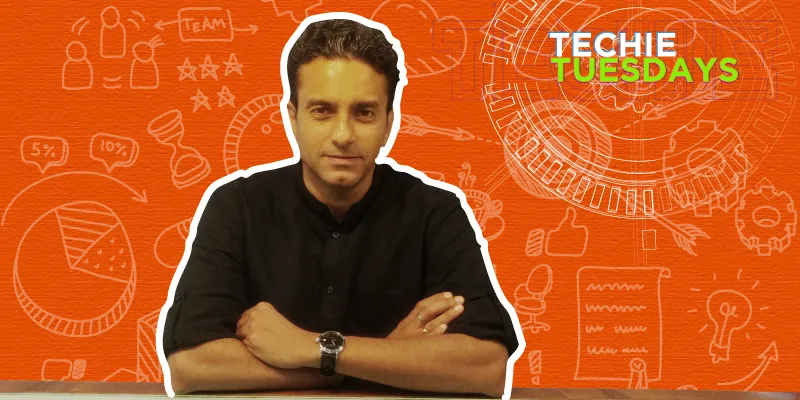
Decision making and values
Vibhore believes that anything material is the byproduct of what one does. He says,
Knowing the importance of money is different than giving the importance to money. Your decisions and motivations in life shouldn't be driven by money.
He wants to stay challenged, passionate and motivated in life, so much so that the following questions to himself keep him alert at all times:
Am I good enough in the current scheme of things? Am I relevant? Am I moving forward? Am I becoming a dinosaur, redundant? Am I learning enough?
Before making any decision, Vibhore asks himself how good or bad it is for all the people concerned.If he is comfortable with the answer, he goes ahead.
A father of two, Vibhore believes that he has still got fuel to burn and is constantly watching for ways he can apply himself. There's one side of him that still looks at the unfulfilled quest of pursuing literature. But,at the same time, he is much more drawn to impactful work, where his work manages to help people long after he is gone. In his opinion, that's a cascade which one can't imagine with direct contact.
You can connect with Vibhore on Linkedin or Twitter.
Trivia – Having missed out on getting a college education, Vibhore later pursued distance learning from IGNOU.







